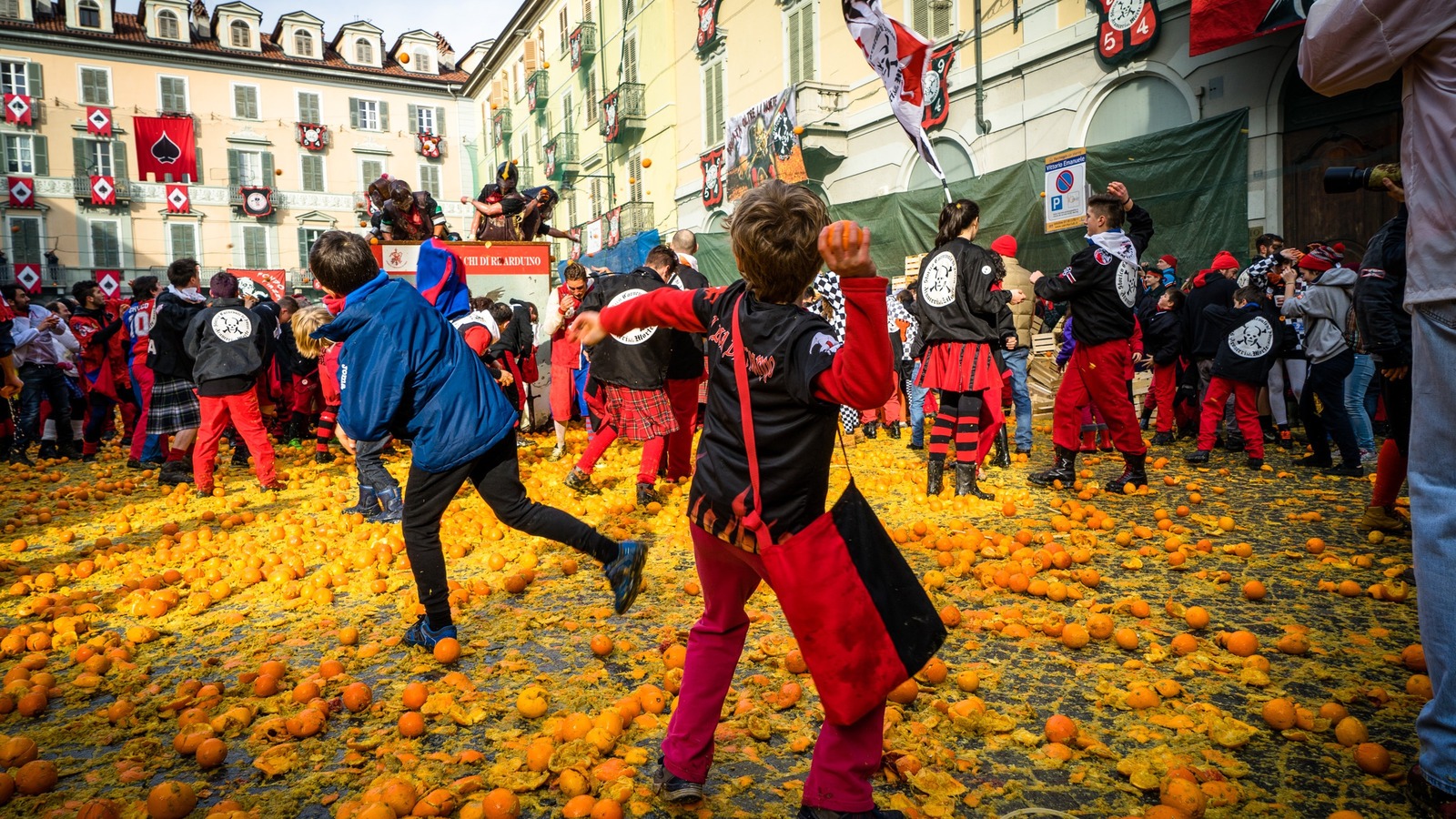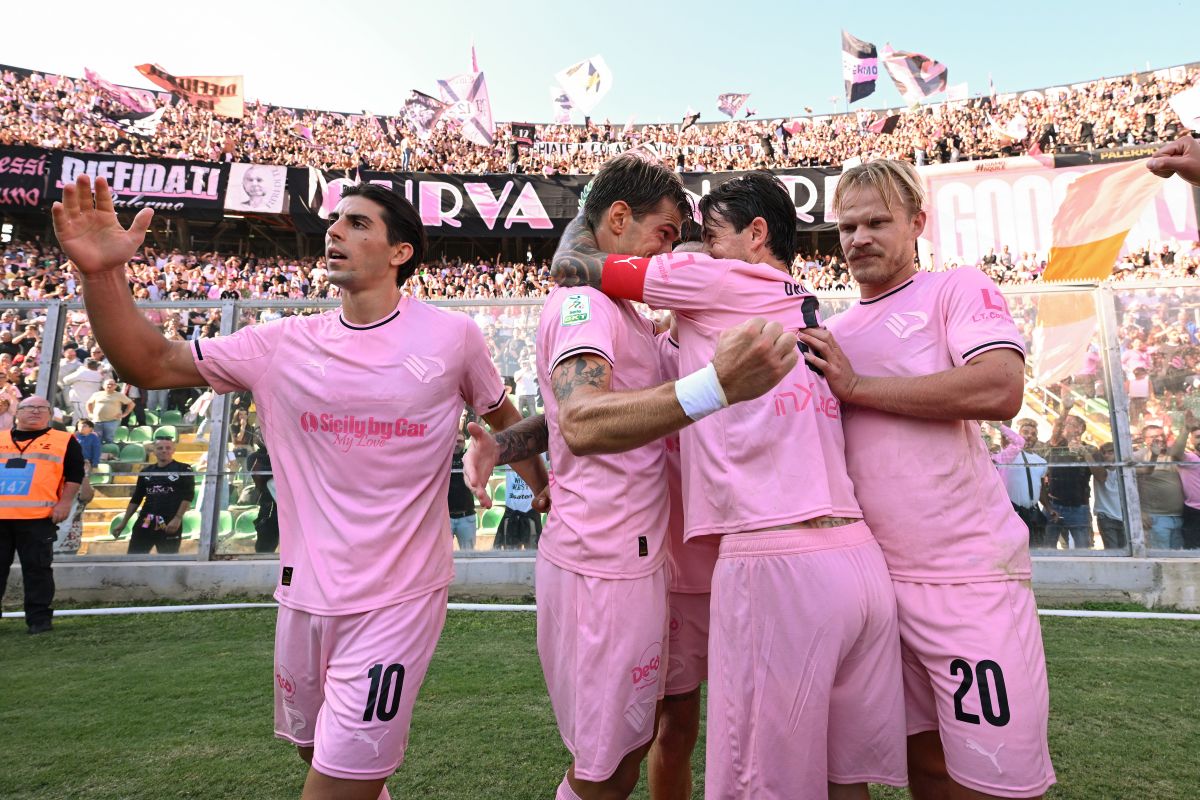
Why Andriy Shevchenko Has Every Right To Celebrate As He Marks Ballon d’Or Anniversary With Ukraine Tour
By Emmet Gates
There he was, looking like a Ukrainian James Bond.
Andriy Shevchenko stood inside studio 3 in Paris wearing a neat suit and tie combo. It was December 2004 — a full 20 years ago — and Shevchenko was, in a throwback to the early 1990s, sporting a ‘curtain’ hairdo, with those golden locks parted right down the middle of his head.
The world’s most feared striker was in the French capital to be coronated as Europe’s best player, with the-then 28-year-old winning the 2004 Ballon d’Or. Adriano Galliani travelled with Shevchenko to the event, along with AC Milan director and former player Leonardo.
As confetti rained down amid the usual pomp and glitz that happens at these award shows, there was little doubt that the man born in a small Ukrainian town 130km east of Kyiv was worthy of the golden ball. He is currently back in his native land now, touring cities hard hit by Russian bombs with his personal trophy on the 20th anniversary of his achievement.
Milan president Silvio Berlusconi phoned in to give his congratulations, while Sheva dedicated the award to the people of Ukraine and his teammates. He became Milan’s first Ballon d’Or winner since George Weah in 1995.
The striker finished ahead of Barcelona pair Deco and Ronaldinho. Deco finished second on the podium for his work with Porto earlier in the year, when he played an integral part in the Dragons’ unlikely (and sadly never to be repeated) Champions League success.
Ronaldinho, meanwhile, was the cornerstone of a new Barcelona era under Frank Rijkaard, and was bedazzling the Camp Nou on a weekly basis through a mixture of tricks, goals and playing football with that boyish joy. The world knew he was on his way to supplanting Shevchenko as the world’s best player, but he wasn’t quite there yet.
The Ukrainian had rattled in 24 goals in 32 games for the Rossoneri as they swept all before them in the league to win Serie A for the first time in five years. He’d also won the 2004 Capocannoniere crown, ending one goal ahead of Parma’s Alberto Gilardino. Five of the 24 came against direct rivals for the Scudetto that season in Inter Milan, Juventus and Roma.
It was Shevchenko’s second Capocannoniere title in five years, to go on top of his winning penalty against Juve in the Champions League final the year prior.
In the post-Gabriel Batistuta landscape, the Milan striker emerged as the game’s greatest centre forward. His name alone struck fear into the heart of defenders.
At the time, there was little debate that Shevchenko deserved the Ballon d’Or. He’d featured in the top 10 four times prior to 2004 and had two podium finishes in 1999 and 2000.
In short, Shevchenko deserved the award.
However, the passage of time has an uncanny way of distorting past events. In 2024, younger football fans see Shevchenko’s name on the Ballon d’Or roll of honour list and scoff.
This is especially the case with fans of English-based clubs, who have formed this outlandish theory that Shevchenko ‘robbed’ Thierry Henry of the Ballon d’Or that year (notwithstanding the fact that Henry failed to even land on the podium).
The theory is based primarily on the Ukrainian’s later struggles at Chelsea, when he was clearly past his best and not suited to Jose Mourinho’s brand of football. For many of the younger generation, Shevchenko is in the same bracket as Igor Belanov, who won the 1986 Ballon d’Or (in an era before the award was opened up to non-European players), Michael Owen and Pavel Nedved as players undeserving of the award.
Arsenal fans, in particular, can be found on forums and TikTok videos bemoaning the fact that Henry was ‘wronged’ by Nedved and Shevchenko.
Those same fans point to Henry’s statistics during that period, when he rattled in 39 goals and 15 assists in all competitions in the 2003-04 season as Arsenal romped to their last Premier League title. The year before, Henry produced 32 goals and a ludicrous 24 assists in all competitions.
Looking at those numbers in the modern, stat-driven time we all encompass, those figures do seem highly impressive and meriting of the Ballon d’Or in either year.
Yet one of the consequences of the binary Lionel Messi or Cristiano Ronaldo era was to strip everything down to numbers. Goals and assists became the name of the game, and applying that logic to the mid-2000s simply doesn’t work.
Henry racked up the numbers, but the measuring stick to winning the Ballon d’Or at the time was always massive performances in Europe or an international tournament. This is where Henry fell flat.
Nedved, for example, produced the performance of a lifetime against Galactico-era Real Madrid in the 2003 Champions League semi-final second leg in Turin, the kind of performance Henry never produced in the era. Shevchenko, meanwhile, scored the winning goal in the other 2003 semi-final against Inter that secured Milan’s passage to the final in Manchester, in addition to scoring more goals than Henry in the knockout rounds a year later.
Even with Henry at the peak of his majestic powers, he couldn’t drag Arsenal’s Invincibles into the latter stages of the competition. They failed to make it past the second group stage in 2003 and only reached the quarter-finals in 2004. It would be 2006 before the Frenchman made his impact felt on the continental stage.
For all the goals and the assists, performances in Champions League were the barometer to winning the Ballon d’Or. Kaka, for example, won the 2007 award based on a handful of electric performances in Europe. In this era Henry simply didn’t deliver.
In the aftermath of Shevchenko’s win, even then-Arsenal manager Arsene Wenger got in on the act, saying: “Shevchenko didn’t win more, didn’t score more goals, and contributed less in assists.” Wenger, of course, was completely impartial.
Aside from the numbers, the argument for Henry stems from the way he played the game, the effortless way he glided past players. He undoubtedly possessed a cool factor and had more charisma than Shevchenko or Nedved, who both had a very Eastern no-frills attitude.

Off the pitch, Henry was doing car commercials and bringing ‘va va voom’ into our living rooms. Nedved and Shevchenko did their talking on the pitch.
When it comes down to it, Shevchenko more than deserved his Ballon d’Or. This historical rewriting from English fans that he was some Mickey Mouse player who contrived to win the game’s biggest individual prize ahead of Henry is a complete fallacy.
Between 2002 and 2006 Shevchenko was the game’s premier striker, his surname a byword for striking excellence. And as he takes his Ballon d’Or on a tour of the Ukraine in celebration of the 20th anniversary, he can be rest assured he earned it.
Related Articles
Related Articles
Football rivalries, world-class sport, surreal carnivals, and a tradition you won’t find anywhere else. Five events to catch in February.
In the latest edition of My Town, My Team, Napoli fan Alex told us why everybody should visit Naples at least once.
Sampdoria against Palermo at the Stadio Luigi Ferraris is just one of the standout matches to be shown live on Destination Calcio TV.





